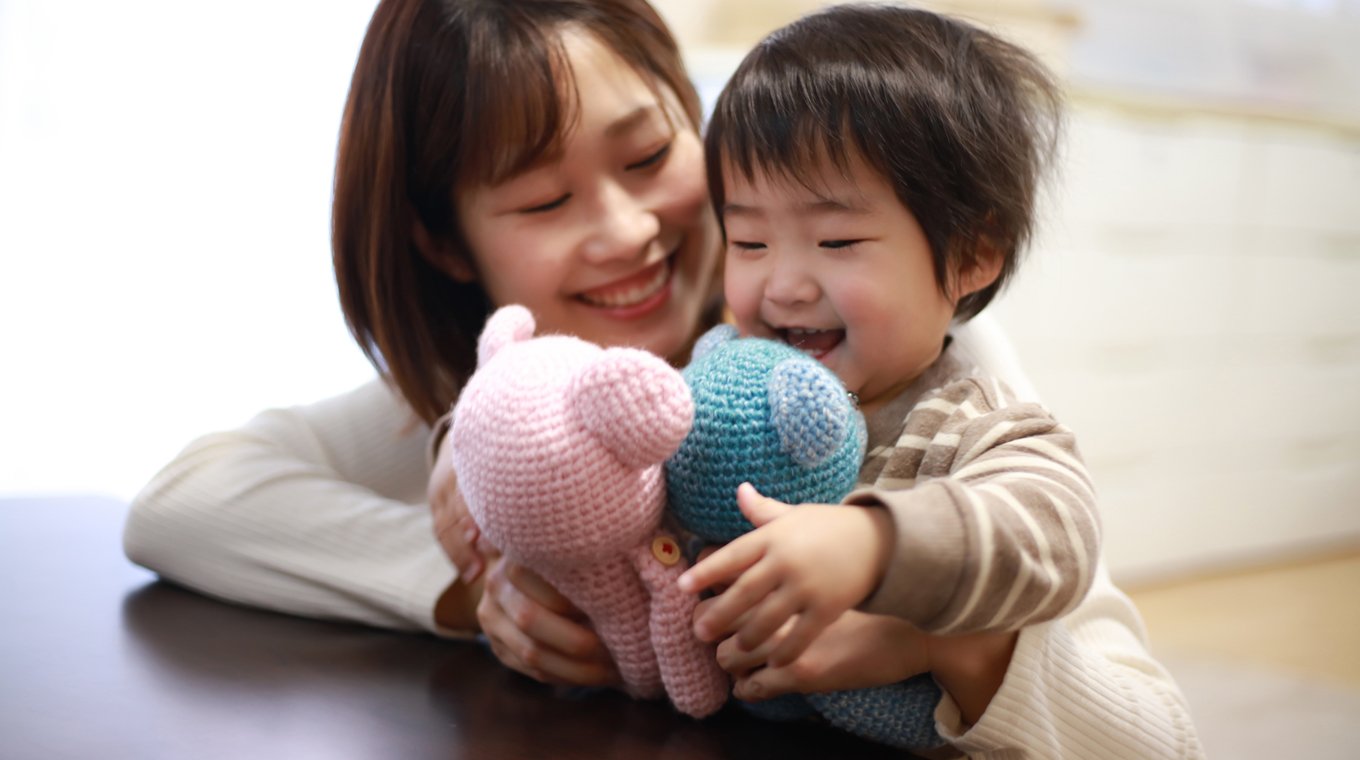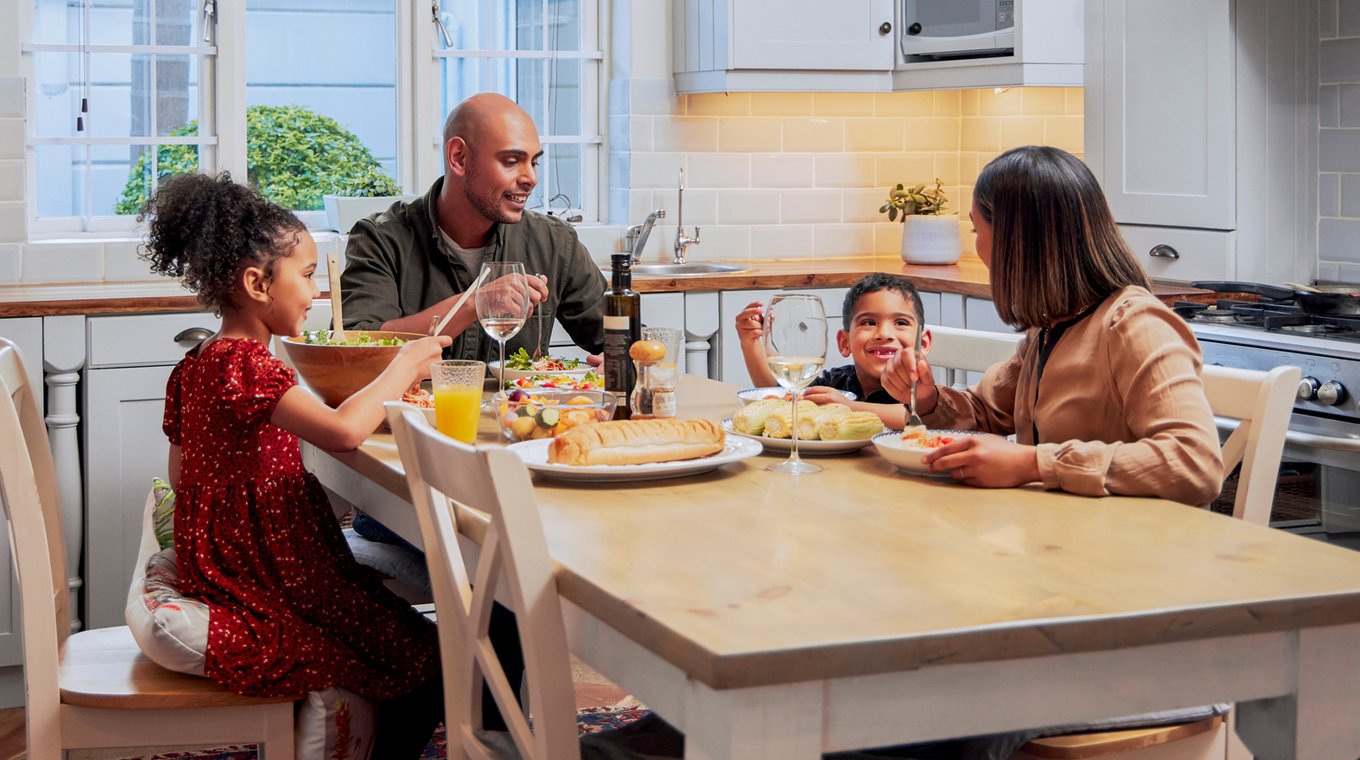
In this article:
Finding out you’re pregnant with another child can be very exciting, especially if you’ve been trying to add to your family for some time. You probably can’t wait to tell some close friends and family, or perhaps you’re waiting to tell everyone until you hit the second trimester.
If you have other children, you may be wondering when and how to tell your kids you’re pregnant, and maybe if you should record it. While every child and family situation is different, here are some ideas to consider about when, how, and if there are certain topics to avoid or navigate around carefully.
When to share pregnancy news with your other children

While you may be tempted to tell your kids as soon as the pregnancy test turns positive, hold your horses. First, consider the age, maturity, and developmental level of your children.
“If you have a toddler, it might be good to start out with a book or stuffed animal that they are familiar with to discuss how there is a new addition to the family coming soon,” Pennsylvania pediatrician Steph Lee, MD, MPH, FAAP told Mom.com. “For older school-age children, you may not need physical aids to discuss your pregnancy, but be prepared to answer their questions on how that baby got in your belly.” Dr. Lee also recommended discussing with your partner ahead of time about how much detail you want to give.
Second, consider when in your pregnancy you want to share with your kids. If you choose to share during your first trimester, you may have to be prepared for your kids to spill the beans (because what child can keep a secret). Depending on their age, you may also have to explain a possible miscarriage or complications you may not wish to expose your child to yet.
If you’re worried about explaining away morning sickness or being low-energy, you can always just say you’re not feeling well or are tired. You don’t have to tell them why.
How to tell kids you are pregnant: Keep it simple

You’ve probably seen all those cute videos on social media where parents set up elaborate skits to tell their kids about their pregnancy.
Writer and mom of three Danielle M. Wilson brought home baby clothes and handed them to her boys. The kids kept throwing away pastels and floral prints until finally her eldest son got to a footie pajama that said “lil sister.” “He said, ‘No way!’” Wilson told us. “The youngest nearly stormed away before the oldest told him to look closely and read. Then he finally jumped up and down in excitement! It was sooo funny. I wish I had recorded it.”
While that is great fun, don’t feel like you need to do this! What matters most is to keep it simple.
Make it easy
“Make the conversation short and sweet. We sometimes want to go into lots of details and all the possibilities. Wait to do that!” Marcie Beigel, Ed.D., BCBA-D, told Mom.com. “You will have lots and lots of conversations about the new baby that’s coming. For the first announcement, make it easy to digest.”
Speak from your child’s point of view
Dr. Beigel also recommended talking about the event from your child’s point of view, not yours. Think more “you’re going to be a big brothers/sister/sibling” and less “I’m having a baby.”
Share three ways the pregnancy will be good for your child
She also suggested sharing three good things that will benefit your kids because of the new baby to help build excitement. It could be as simple as they will get to teach their sibling how to do all sorts of big kid things.
Leave out the hard parts
Of course, there will be some negatives to having a new baby, but that doesn’t mean you have to discuss it right now. Leave that for another conversation after their already excited for the new addition.
Ask if they have questions
“Let your kids ask you anything and everything or nothing at all,” advised Dr. Beigel. “Answer honestly, including saying, ‘I don’t know yet’ or ‘we are going to figure that out together.’ It also may include sharing how babies are made so if you have not talked about this yet with your kids, this is a great day to start!”
If you haven’t decided to talk about where babies come from, make sure you prepare what you do want to tell your kids.
How will your child react?

Of course, the best-laid plans often go awry when children are in the mix, so be prepared for reactions that are not positive or even apathetic! If your kids aren’t happy about the new baby, that’s OK. It’s a big change for them and they will need time to adjust.
“Change can be hard! Don’t get flustered,” added Dr. Beigel. “When they make negative comments, give a small reaction, like ‘oh’ or ‘I hear you.’ You don’t need to convince them.”




